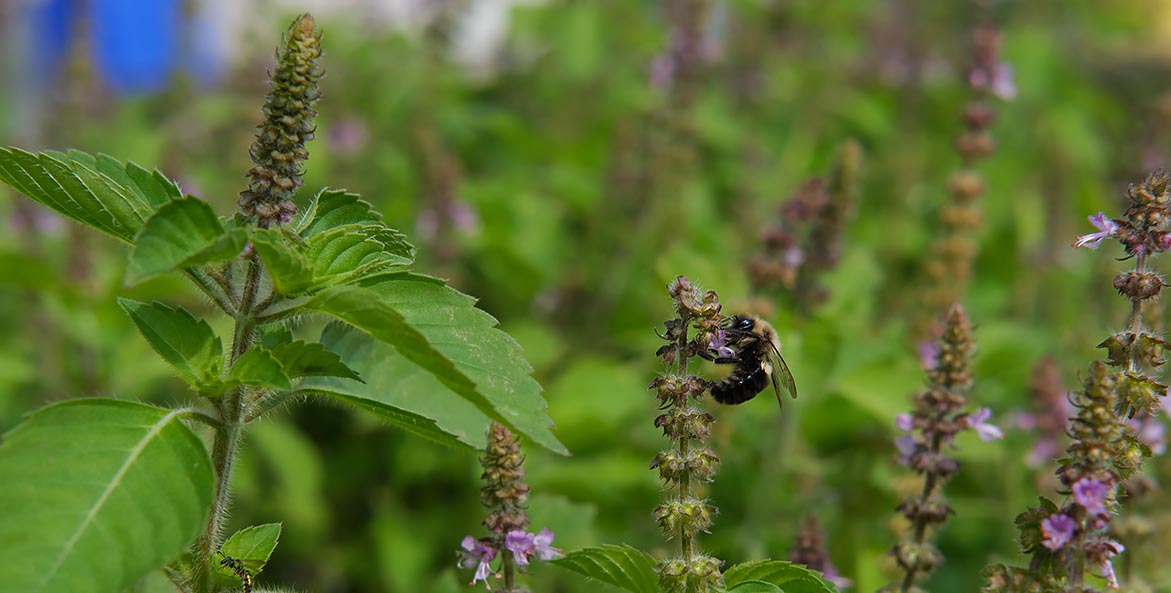A doctor writing in a 1895 edition of the Journal of the American Medical Association extolled Baltimore's "inexhaustible supply of excellent water" from the Gunpowder River as a chief source of the city's health. As the latest issue of Save the Bay magazine shows, a growing body of public health research backs up what many of us sense intuitively: The health of our communities is inseparable from the health of our environment. Discover the potential health benefits of Bay restoration and why we should build a healthy Bay and healthy communities at the same time. Learn how air pollution threatens our waterways and our health and how one community is helping anglers who rely on fish for food safely prepare their catch from the Anacostia River, despite pollution. Finally, catch up on the latest watershed news—including the return of blue crabs.
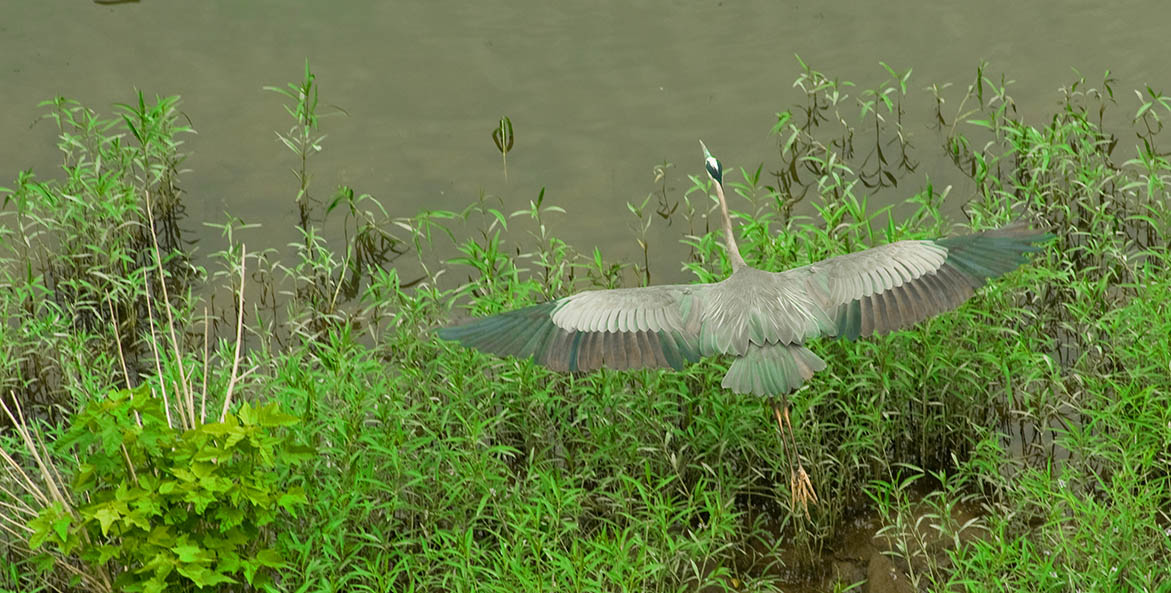
A heron taking flight from the banks of the Potomac River in Harper's Ferry, West Virginia.
Richard Brown
Bay Health Is Public Health
Complex modern health challenges necessitate a focus not only on curing disease but also on creating environments that promote health in the first place. It should come as no surprise that restoring our environment can and should help restore the health of our communities. Solutions that offer significant co-benefits cannot be ignored.
VIDEO: Blue Crabs Return
The early life of a Chesapeake Bay blue crab can be perilous—a fact underscored by this week's release of the Winter Dredge Survey results, which showed a decline in juveniles. Beginning as an egg adrift in the ocean, crabs face predatory fish, blue herons, and even other crabs on their journey back to the Bay.
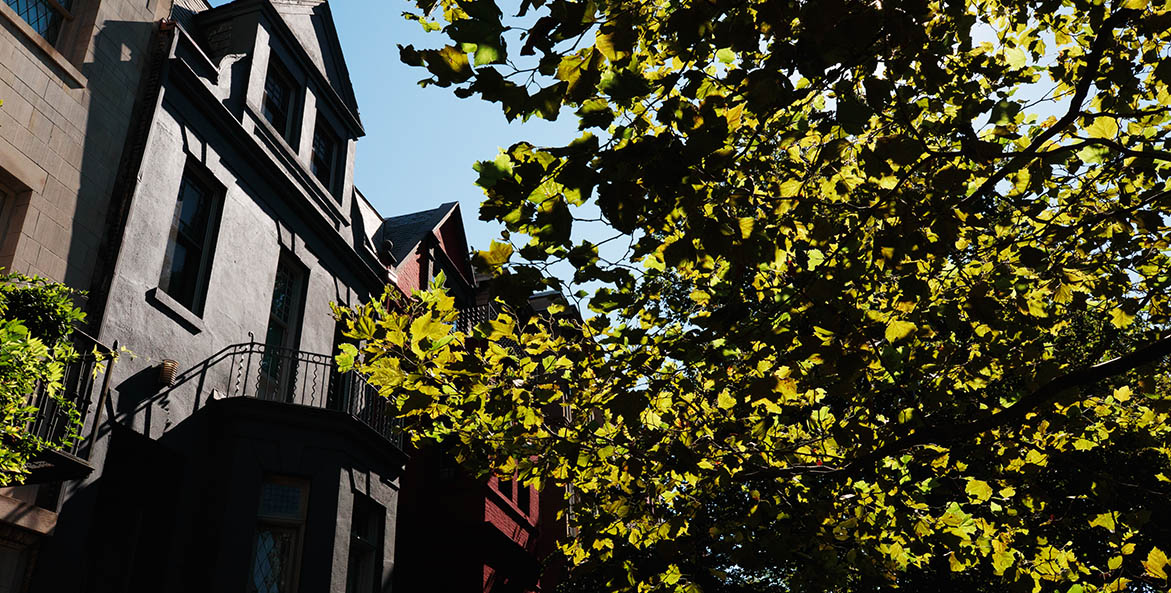
Urban tree canopy shades a stretch of Q Street in Northwest Washington, D.C..
Carlin Stiehl/Chesapeake Bay Program
5 Ways Bay Restoration Saves Us, Too
When we plant trees, conserve forests, reduce air pollution, and grow food using regenerative agricultural practices, we improve water quality in the Bay watershed. Research suggests these practices may also improve our health—helping lower blood pressure, boost mental health and learning, cultivate beneficial digestive microbes, and even strengthen community bonds.
VIDEO: Air Pollution's Dirty Water Secret
More than 135 million people—disproportionately people of color—live in areas with unhealthy levels of air pollution, according to the American Lung Association. It harms our water, too. One-third of the Bay's nitrogen pollution comes from the air, and it can travel from an area nearly nine times larger than the watershed.
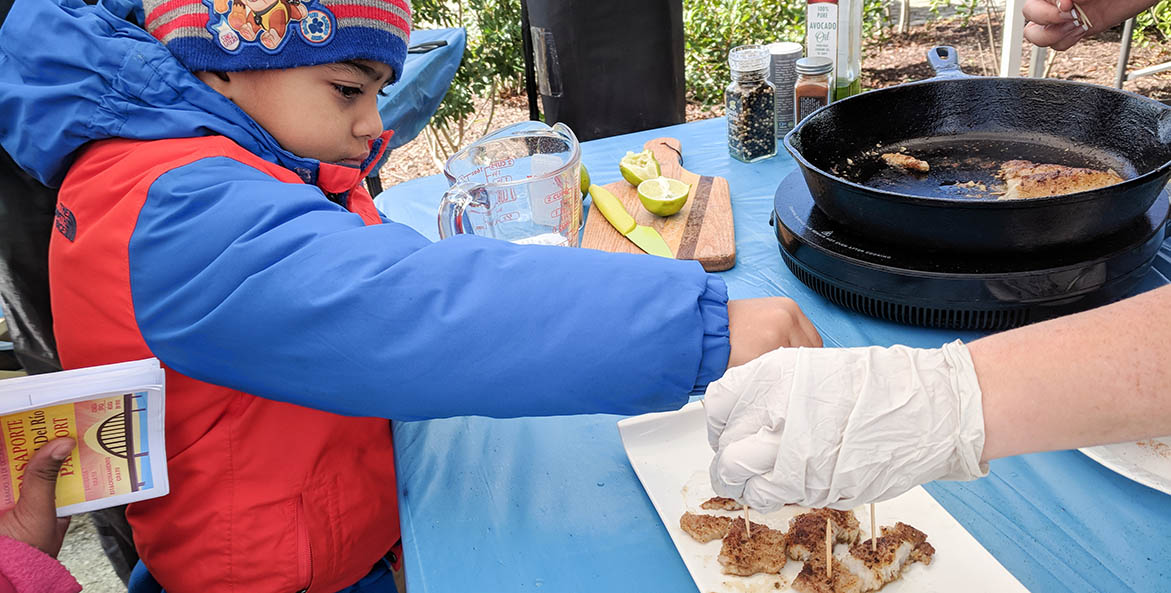
At the Chesapeake Bay Program fish consumption advisory talk and demonstration, Kleiver Velasquez reaches out for a taste of fresh, skinless catfish fillet.
Michelle Williams/Chesapeake Bay Program
Safe Fish, Safe Food
For the last five years, the Festival del Rio Anacostia has welcomed Latino families to the Bladensburg, Maryland, waterfront to celebrate their culture and the river. A popular exhibit demonstrates how anglers can safely prepare and eat the fish they catch, limiting exposure to toxic pollutants that can accumulate in certain species, and cultivates water stewardship.
VIDEO: Around the Bay in 60 Seconds
This month's news wrap-up covers vehicle emission standards, farm funding, an oyster shell archaeological dig, and more. Extra: CBF President Will Baker and former Maryland State Senator Bernie Fowler share what they've learned in their combined 100 years of Bay-saving and make the urgent case for federal leadership in this Washington Post op-ed.
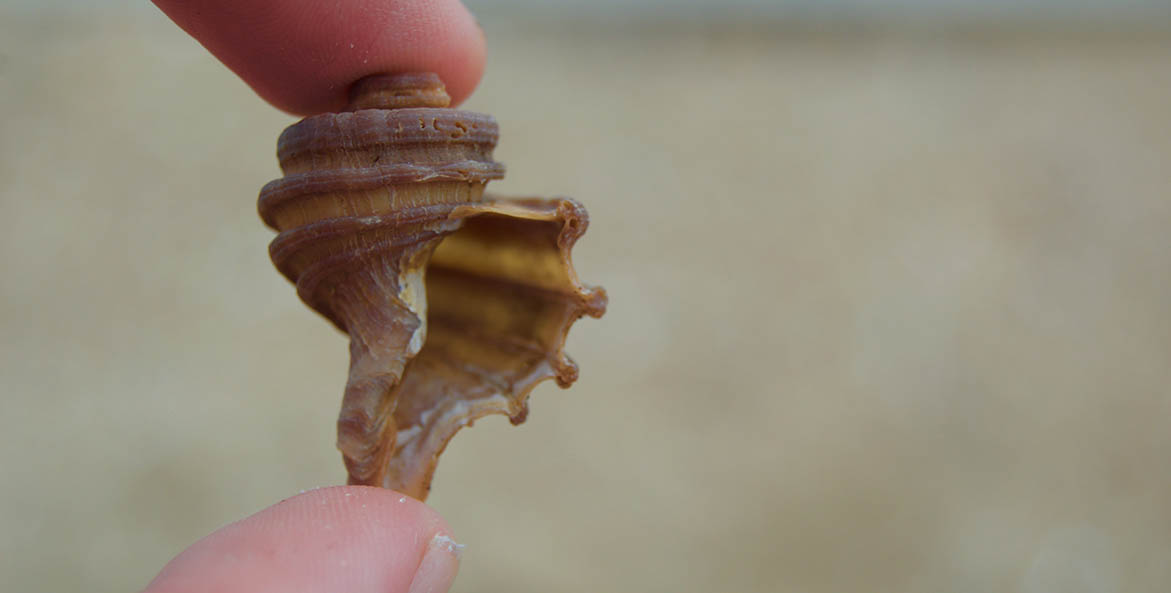
Ecphora gardnerae gardnerae Wilson, the official fossil shell of Maryland is an extinct snail, or gastropod.
Morgan Jones/CBF Staff
What You Can Do
- Are you a researcher, student, restoration expert, or aquaculturalist and have a love of oysters and science? Register for the inaugural Chesapeake Oyster Science Symposium.
- Thank you to all our 2021 Walk the Watershed participants! The event may be over, but you can still donate to a participant or team that inspires you.
- Go proggin' and discover outdoor treasures with our latest nature journaling prompt.
- Help make the Chesapeake even more beautiful by preventing and picking up litter for this year's Clean the Bay Day event, May 31–June 5.
- Write your will online and begin your enduring commitment to the Bay with a legacy gift.
- Help us continue to bring the Bay and its rivers to you at home each month. Donate today.
Issues in this Post
Air Pollution Blue Crabs Community Conservation Environmental Justice Fishing Restoration

